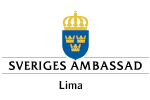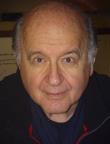 Thomas Pikettys ”Kapitalet i det tjugoförsta århundradet” har väckt uppmärksamhet över hela världen inte för dess korståg mot ojämlikhet – många av oss ägnar sig åt det – utan på grund av dess centrala tes, som bygger på hans tolkning av 18- och 1900-talen: att kapitalet ”mekaniskt producerar godtyckliga, ohållbara ojämlikheter”, som oundvikligen leder världen till fattigdom, våld och krig – något som kommer att fortsätta under detta århundrade.
Thomas Pikettys ”Kapitalet i det tjugoförsta århundradet” har väckt uppmärksamhet över hela världen inte för dess korståg mot ojämlikhet – många av oss ägnar sig åt det – utan på grund av dess centrala tes, som bygger på hans tolkning av 18- och 1900-talen: att kapitalet ”mekaniskt producerar godtyckliga, ohållbara ojämlikheter”, som oundvikligen leder världen till fattigdom, våld och krig – något som kommer att fortsätta under detta århundrade.
Read more ...
 Posted by B Holmes on 19 June 2015
Posted by B Holmes on 19 June 2015
In 2000, revered Peruvian economist Hernando De Soto published The Mystery of Capital: Why Capitalism Triumphs in the West and Fails Everywhere Else, a study on the relationship between poverty and property rights. In the book De Soto claims approximately $9 trillion is tied up in land, homes and businesses belonging to people who do not have deeds or titles.
Peter Kirby, CEO and founder of Factom, draws inspiration from De Soto and endeavours to make an impact in the land title arena. “Land Title corruption is a very common problem in the developing world and a immutable ledger solution could help these economies move forward dramatically.”
According to the USAid and Tenure website approximately 80% of privately held land in Honduras is untitled or improperly titled. “Only 14% of Hondurans legally occupy properties and, of the properties held legally, only 30% are registered.” The ongoing land title disputes in Honduras have lead to violence, environmental abuse, and the displacement of indigenous people.
Read more ...














 In
In 